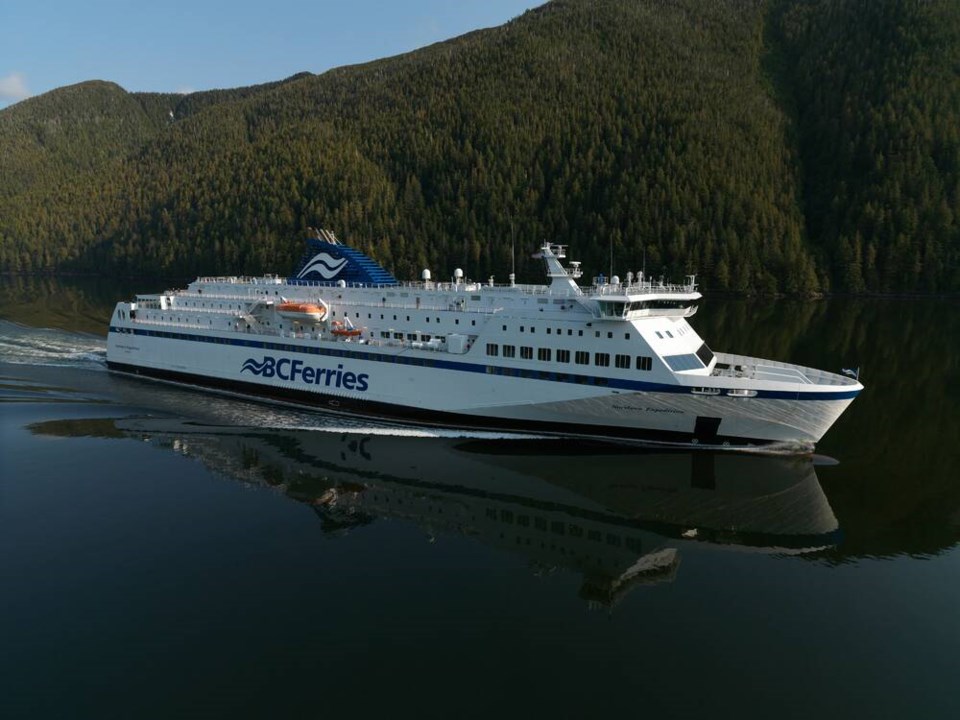B.C. Ferries’ Northern Expedition appears to have hit a humpback whale for the second time since late July.
When a humpback surfaced in front of the southbound ferry on Tuesday evening, the crew put the engines in reverse but believe the 152-metre-long ferry hit the whale despite their efforts, a company spokesperson said.
“It’s disturbing quite frankly. We take these things really seriously because they happen so rarely. I can’t stress that enough,” B.C. Ferries president Nicholas Jimenez said Thursday.
Northern Expedition was heading from Prince Rupert to Port Hardy at the time of the incident. About 20 whales had been spotted at Mosley Point and the strike happened later in Fitz Hugh Sound. A near miss had occurred earlier in the day, Jimenez said.
“This is an issue we need to be very close to and pay a lot of attention to,” he said, adding the new vessel protocol is to reduce speed while going through areas where a vessel is most likely to encounter whales.
B.C. Ferries said Fisheries and Oceans Canada was immediately informed about the Tuesday incident. The federal Fisheries Department then notified local First Nations, whale researchers and non-governmental organizations.
All are monitoring the area and will report an injured humpback whale if sighted, said DFO spokesperson Lara Sloan. On July 20, while sailing in Wright Sound, Northern Expedition likely made contact with a whale and DFO was notified.
Concern is growing about the number of humpback strikes by marine vessels. There were four large-vessel strikes between July 20 and the Tuesday collision, said the Marine Education and Research Society. A large catamaran ferry and a cruise ship were involved, as well as the B.C. ferry, it said.
Humpbacks have been making a comeback after being hunted to near extinction for whale oil, meat and other products. They can reach 15 metres in length and weigh 40 tonnes.
It’s standard practice for B.C. Ferries vessels to slow down if whales are ahead of them, said company spokeswoman Deborah Marshall.
B.C. Ferries has an “unwavering commitment” to protect and preserve whales, she said, noting the company’s policy for operating vessels when marine mammals are present was the first one among ferry operators in North America.
The company has been participating in the B.C. Cetacean Sightings Network for 45 years, and all bridge teams must take a special tutorial on safe navigation around marine mammals, Marshall said.
B.C. Ferries is working with industry to find more technological tools to improve monitoring and detection, she said.
It plans to collaborate with the federal Fisheries Department and researchers to use technology such as hydrophones and infrared cameras equipped with artificial intelligence to help detect marine mammals.
Any operator of a vessel or fishing gear involved in accidental contact with a marine mammal is required to notify the federal Fisheries Department, according to Marine Mammal Regulations.
>>> To comment on this article, write a letter to the editor: [email protected]



